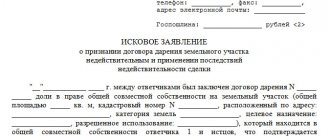Mortgage real estate has its own characteristics that should be taken into account at the stage of applying for a loan. Despite the fact that such objects are the property of the borrower, they can only be disposed of with the consent of the bank. For example, many do not know whether it is possible to bequeath an apartment with a mortgage and how to do it. Considering the loan term (on average 25 years), this issue is of particular relevance.
Mortgage
If we consider in more detail what a mortgage is, then in fact it turns out that it is some form of collateral. The debtor pledges the property in his possession and receives funds in return, thus the credit institution guarantees itself the return of the issued funds. A person purchasing real estate in this way must keep in mind that if for some reason he is unable to repay the established payments, the bank will simply take the property as payment, no matter how much the debt is repaid.
A mortgage loan has some characteristics unique to it:
- the time period during which it can be repaid can reach 30 years;
- purpose, that is, it must be indicated what the amount spent on and the full address of the object that is being purchased;
- the interest rate of these loans is much lower than that of other loans;
- This loan is processed in accordance with mortgage legislation.
Another feature is that the item put up as collateral is the property of the borrower, but no specific actions are taken, for example, sale, etc. He won’t be able to do anything with her without the bank’s approval.
Making a deal
The paper preparation procedure consists of several stages:
- Verification of the owner's identity and legal capacity.
- Placing the signatures of the will-maker and the notary on the finished document.
- Registration of a document in a special register.
You need to start by providing the necessary documents. This:
- identification document (passport);
- information about heirs (full name, address and date of birth).
Next, at stage 2, the will is drawn up and signatures are affixed. This document must include the following points:
- Full name of the will-maker;
- Date of Birth;
- address;
- information about the issuance of a passport;
- information about heirs;
- description of living space;
- date of document preparation;
- Full name of the person who drew up the document (the testator himself or the notary).
The gift agreement requires a visit to government agencies with documents: the gift transaction and re-registration of property rights. The whole process takes about 20 days. There must be 2 copies of the agreement.
Main points of the document:
- property value;
- dependent's right of residence;
- rent payment schedule (here it is better to indicate quarterly, so that late payments are not
- grounds for termination of the contract);
- information that the apartment is not mortgaged;
- an indication that even force majeure circumstances do not cancel the owner’s security obligations.
The death of the donor is the basis for the transfer of real estate into the ownership of the donee.
Order of succession
Like any other property of the deceased, mortgaged housing may be subject to inheritance by will or by law after the death of the owner.
When transferring such a core in accordance with:
- with a will, the property is transferred to the persons specified in this document;
- if the document has not been drawn up, the transfer of ownership is carried out in accordance with the procedure established by law, that is, in order. The subjects who have the right to receive an inheritance in the person of the former include the surviving second spouse, existing children, these include those who were adopted and the parents of the deceased. If there are no such people, then the right to receive the inheritance passes to the brothers, sisters and then the grandparents of the deceased, so the law provides for eight degrees of kinship, the transfer of the right is carried out if previous applicants are absent or refused to receive.
In accordance with the law, heirs receiving property in accordance with the order receive equal shares of the assigned property among themselves. But everyone has the right to renounce his share in favor of another heir; this right applies both to receipt by will and by law. Such a declaration of will must be in writing and certified by an authorized person (notary).
So, obtaining a mortgage apartment must be formalized in accordance with the law; for this, future owners will need to contact a notary office with a package of papers:
- documentary evidence of the death of the person who is the testator;
- confirmation that the deceased had registration in the abandoned living space;
- documentary facts confirming family ties with the deceased;
- and a corresponding sample application.
If no difficulties or obstacles arise during the deadline for processing documents through a notary, then in six months a certificate of inheritance rights will be issued.
After the death of the testator, the heir should immediately notify the credit institution that their borrower has died; as a rule, banks oblige their borrowers to insure themselves and in this way it will be possible to repay the balance of the debt.
ATTENTION !!! It is important to notify the insurance company in advance and provide all the necessary documents that an insured event has occurred. It is important not to delay notification, as insurance contracts indicate a certain period of time during which it is necessary to notify the insurance company and, in case of delay, you will have to go to court and defend your rights through it. If insurance has not been taken out, you can re-issue the contract in your name and thus every month you must pay off the amount that the tank will indicate in the new contract.
IMPORTANT !!! It should be remembered that the heir should contact the insurance organization since this is not the responsibility of banks.
How to make a will
You can draw up your last will yourself or contact a specialist. However, it should be borne in mind that no matter how you formalize the expression of will, the document must be notarized.
Compilation requirements:
- written form;
- presence of the testator's signature;
- attached certificate of legal capacity and absence of mental illness (if the applicant is older than retirement age);
- seal and signature of the notary.
In certain cases, a will can be certified by other persons:
- the head physician of the hospital, if the will-holder is staying there for treatment;
- head of a military unit;
- ship commander;
- head of the executive colony;
- an employee of the Russian consulate, if the testator is abroad;
- the head of the local administration, if there is no notary office in the locality.
Inheritance options
The law provides for some methods of inheritance, which include:
- after the death of the borrower, very often, the acquisition of real estate is carried out not by one, but by several citizens, it can be registered in the name of the second spouse, children, etc. In such cases, the joint acquisition gives both the right and responsibilities in relation to the shares provided for by it. If the co-borrower dies, then his share passes to the heirs and receipt is carried out as the object as a whole;
- if there are several heirs, you will need to take into account some points: any of them has the opportunity to refuse the share due to him in favor of another heir, receipt by law implies the division of property in equal shares between them, the same applies to mortgage housing and the remaining debt on it. If there is a testamentary document and it indicates specific shares that are due to a particular person, then the debts on the property are distributed in accordance with them; in cases of selling your part, you will need to obtain the approval of all other recipients. All disputes arising in these situations are resolved through the courts.
IMPORTANT !!! After the death of the husband, the wife has the right to half of the property acquired during the marriage relationship, the same applies to mortgaged housing, the rest is divided in equal shares between several heirs, and she is also included in this category;
- persons who have not reached the age of majority, in other words, minor citizens who become heirs, resolve all issues through their legal representatives. When inheriting mortgaged housing, the issue is also resolved with representatives. Sales of real estate are carried out only with the permission of the guardianship authorities.
In all cases, any disagreements that arise are resolved in court.
With a credit apartment purchased before marriage in the case of the remaining second spouse, you need to know that the right to half of this property does not arise, since it only applies to what was acquired during the period of legalized relations.
But when dividing real estate between heirs, it is worth understanding that the right to half of the real estate, and in this case the amount from it, arises from the moment of marriage, that is, with the cost of housing at 4 million, only 400 thousand were repaid before the marriage, then the calculation of that how many payments have been made and half of them can be claimed, that is, here either a division of shares occurs in favor of the second spouse in the same way as payments were made during marriage, or the remaining receivers compensate for that amount or simply renounce their shares in favor of the remaining spouse.
Death of a co-borrower
When applying for a mortgage, banks practice joint and several liability, involving co-borrowers in the process. They most often are the second spouse, adult children, and the parents of the borrower. Their income is taken into account when determining the amount of the future loan.
The life and health of the co-borrower is also subject to insurance. And then the solution to the problem of what to do in the event of the death of a co-borrower on a mortgage will be to contact the insurance company to receive compensation.
When determining the insurance payment, the following will be taken into account:
- how the parties’ incomes were distributed when determining the loan amount;
- the insurer will pay off the obligations only to the extent that falls on the share of the deceased co-borrower.
A good example. The monthly income of the spouses was: husband - 80 thousand rubles, wife-co-borrower - 20 thousand rubles. They issued a mortgage in the amount of 1 million rubles, which, according to the bank’s requirements, was insured with a 10% premium, which amounted to an insured amount of 1 million 100 thousand rubles. The wage ratio was 4:1. Then insurance will be issued for the borrower in the amount of 880 thousand rubles, for the co-borrower - 220 thousand rubles. And in the event of the death of the spouse, the interested party can claim compensation within the limits of the insured amount.
Payment of mortgage debt by receivers
In accordance with the law, the receivers, together with the property, also receive the debt obligations held by the deceased. If there is no mortgage insurance, then the remaining amount is divided among the receivers in accordance with the shares they received. In this case, the recipients should draw up a peace agreement, which they must sign and on the basis of which they undertake to pay the amounts assigned to each.
But it is not always possible to pay the due amount, what to do in such cases?
The law allows several options:
- Discuss with the banking organization the possibility of making some changes to the loan agreement. If the discrepancies in the amounts of payments are insignificant, the bank will allow you to increase the duration of the agreement, thereby reducing monthly payments.
IMPORTANT !!! If the heir is unable to pay the debt, the bank has the right to terminate the contract earlier than the established period and put the housing up for sale by court decision;
- it is also allowed to rent out housing in this way, it will be possible to compensate for the amount billed for payment, but renting out housing is allowed only with the permission of the credit institution;
- Another possible solution could be to sell the property and pay off the remaining debt using the proceeds; the remainder goes to the receiver; if there are several heirs, the consent of all should be obtained and in the future the balance will be divided between them;
- The law also provides for refusal to accept the inheritance; in this situation, the housing goes to the bank. But here it’s worth knowing that giving up an apartment is possible only if you completely renounce the inheritance, that is, you cannot choose what to keep and what to give up. In some cases, such real estate may be bequeathed to one person, for example, the only heir under the will is a daughter, but she cannot afford to pay the loan, she has the right to refuse it, but at the same time she falls under the category of heirs to the remaining property and has full right to receive your share.
In most cases, even if it is impossible to repay the remaining amount, the heir accepts the inheritance and, together with the bank, decides on what to do next. This is especially true if the deceased has already paid off most of the mortgage; in such cases, banks cooperate with the heirs and meet them.
IMPORTANT !!! If, within the period established by law, which is equal to six months, the property is not accepted, then the law will regard this as a refusal and it will become the property of the bank.
Mandatory heirs
When drawing up a will, the testator must take into account the interests of the obligatory heirs. They are entitled to at least ½ of the property, which is usually claimed by the heirs by law (Article 1149 of the Civil Code of the Russian Federation).
When opening an inheritance case, the notary must check the composition of the heirs and identify the obligatory applicants. The part of the property assigned to him is separated from the untested property. If the testator has written off all the property, then the share of the heirs under the will is subject to reduction.
Refusal to award a share to obligatory heirs is permitted in exceptional cases. The main claimants to the property can initiate legal proceedings.
A mortgaged apartment is a dubious inheritance. Together with a share in the object, the citizen inherits credit obligations. Therefore, a compulsory heir can formalize a refusal to enter into an inheritance.
Payment by insurance
Insurance payments in the event of the death of the owner of the mortgaged home pay off the remaining amount, that is, the insurance company assumes the obligation to pay off the remaining mortgage amount and additional compensation in the amount of 10%.
But not everything is so simple; when signing an insurance contract, a large list of situations is indicated that are not covered by insurance, that is, that are not subject to payment if they arise:
- radiation;
- deprivation of life by suicide, etc.
As a rule, payments are made if a citizen dies from illness or accident. In most of these cases, insurers try to find evidence of death due to chronic diseases that were hidden at the time the agreement was signed. You should always carefully study the agreement and you can always contact lawyers, and then go to court.
Inheritance of mortgaged property is a procedure that imposes obligations on the heir to repay the remaining amount, but do not be alarmed since in most cases the bulk of the debt has already been repaid by the deceased testator. As a rule, banks cooperate and make a number of concessions in relation to the heirs, thereby facilitating the repayment of the mortgage loan.
List of documents
To draw up a testamentary agreement, the testator needs to prepare the following papers:
- identification;
- list of heirs;
- receipt for payment of tax contribution.
An additional list of documentation is sometimes required to be provided by a notary. Often you need to collect the following documents:
- copies of Russian passports of heirs for correct registration of data;
- title documents for the property property.
Such a requirement can be easily justified. The fact is that mistakes made when drawing up a testamentary agreement may be the reason for refusing to issue a certificate to the heir, or for challenging the will.






